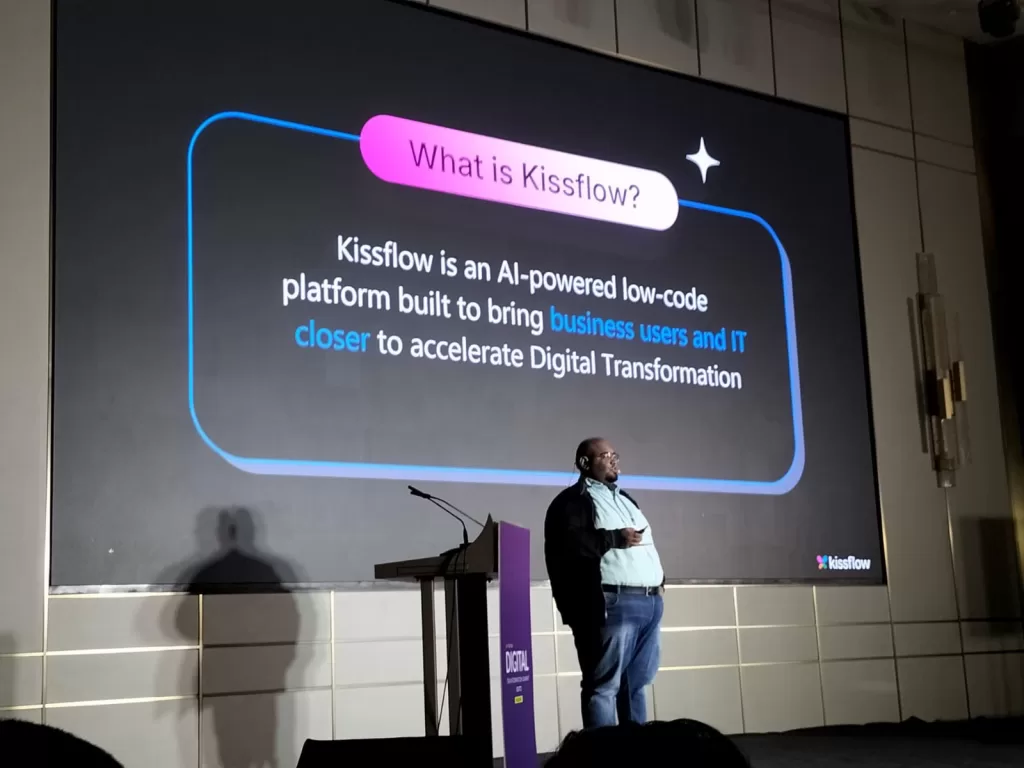Malaysia is on an accelerated path towards becoming a digital economy. Yet, the ambitious goal of digitising every facet of business and public service faces a significant hurdle: the sheer scale of the task. Traditionally, digital transformation has heavily relied on central IT departments and the availability of skilled developers. But what happens when the number of processes needing automation far outstrips the capacity of even the most capable IT team?
This is where a paradigm shift is gaining traction: Citizen Development. It’s a concept championed by many in the tech space, including those we recently spoke with, that suggests the key to widespread digitisation lies in empowering the workforce itself.

Citizen Development is about enabling individuals within business units – the HR executive, the operations manager, the procurement officer – to create, or significantly modify, applications and workflows that solve their specific problems, using tools sanctioned by IT. It’s born out of the recognition that these individuals possess invaluable domain knowledge about their processes, knowledge that is crucial for building effective digital solutions. As Rakesh Nandakumar, Associate Vice President, Southeast Asia at Kissflow, put it:
“Citizen development is when business users build applications or workflows or any automation which the organization wants in a way the organization would prefer it… I’m talking about proper business guys… They themselves building their own process automations and more automations is what I’m alluding to.”
The Imperative for Broader Digital Participation
Why is this shift necessary now? Firstly, the scale of internal processes in large organisations is staggering. Relying solely on a central IT team to automate hundreds or thousands of unique workflows is simply not feasible within a realistic timeframe. It creates bottlenecks and slows down the pace of innovation and efficiency gains.
Secondly, the workforce is changing. Newer generations entering the workforce are digital natives, comfortable with technology and eager to solve problems directly. Handing them manual processes in a digital world is inefficient and can impact employee satisfaction. Empowering them with the tools to improve their own workflows leverages their digital fluency and intrinsic motivation.

Thirdly, and crucially, relying solely on hiring more professional developers, while important for complex systems, cannot close the digital gap fast enough. Think back a few decades: taking a photograph required specialised skills, equipment, and a trip to a studio. Today, sophisticated technology in our pockets makes photography accessible to virtually everyone. Similarly, the challenge isn’t just about having more developers, but about making digital creation accessible to a much wider audience – making “everyone a problem solver,” digitally.

“How many more developers will you bring in to solve the problems which are there in enterprise? Because the scale of the problem is not 10x. The gap is too wide to simply create more developers to solve the problem. This problem can only be resolved if you believe everybody in your organization can potentially be a problem solver…”
Rakesh Nandakumar, Associate Vice President, Southeast Asia at Kissflow
Technology as the Great Enabler
This is where modern technology plays a vital role. The rise of no-code/low-code platforms has fundamentally changed who can build digital solutions. These platforms abstract away the complexity of traditional programming. Instead of writing lines of code, users can build applications and automate workflows using intuitive visual interfaces, drag-and-drop components, and pre-built templates. A business user can define a process flow or build a digital form by thinking about the business logic, not the underlying database structure or programming language. Low-code also provides IT with the flexibility to extend these solutions or build more complex components when needed, fostering collaboration between IT and business users.

Furthermore, advancements in Artificial Intelligence, particularly generative AI, are accelerating the citizen development journey. AI can act as an intelligent co-pilot, offering suggestions based on best practices, automatically generating form fields for common processes, and guiding users through workflow design. This reduces the initial learning curve and helps citizen developers build solutions more effectively and efficiently, bridging the ‘knowledge gap’ on how to start.
These technologies empower individuals with deep process knowledge to translate that understanding directly into functional digital tools, addressing the “middle office” challenges that often fall through the cracks of enterprise-wide system implementations.

“The middle of this operation is just often left to excels and spreadsheets and paper. And that is exactly where [platforms enabling citizen development] come into play.”
Rakesh Nandakumar, Associate Vice President, Southeast Asia at Kissflow
Ensuring Governance and Security
A common concern with distributing development capabilities is the risk of ‘shadow IT’ and security vulnerabilities. However, the enabling technologies designed for citizen development incorporate governance frameworks. These platforms are typically owned and overseen by a central authority within the organisation, like IT or a dedicated Center of Excellence (COE).
This central team can set standards, provide guidance, validate citizen-built solutions, and manage the underlying infrastructure. Modern platforms also come with built-in enterprise-grade security and compliance features, ensuring that even solutions built by non-developers adhere to necessary regulations and data protection standards. This ensures that empowering the workforce doesn’t come at the expense of security or compliance.
Accelerating Malaysia’s Digital Future
For Malaysia, embracing Citizen Development, supported by accessible no-code/low-code technologies and AI, offers a powerful path to accelerate its digitisation goals. It allows organisations across key sectors – finance, retail, manufacturing, energy, and more – to rapidly digitise internal operations, improve efficiency, and enhance employee experience. By empowering a broader segment of the workforce to participate actively in the digital transformation journey, the nation can unlock significant productivity gains and foster a more digitally capable and agile economy. Citizen development, therefore, is not just a trend; it’s an essential strategy for comprehensive and effective digitisation in the modern era.

Rakesh Nandakiumar
Associate Vice President, Southeast Asia
Kissflow
With over 10 years of experience in the IT industry, Rakesh is a result-driven professional who leads the SEA and inside sales business teams at Kissflow, a low-code no-code platform. His mission is to help businesses achieve digital transformation and operational excellence with simple and powerful solutions.






